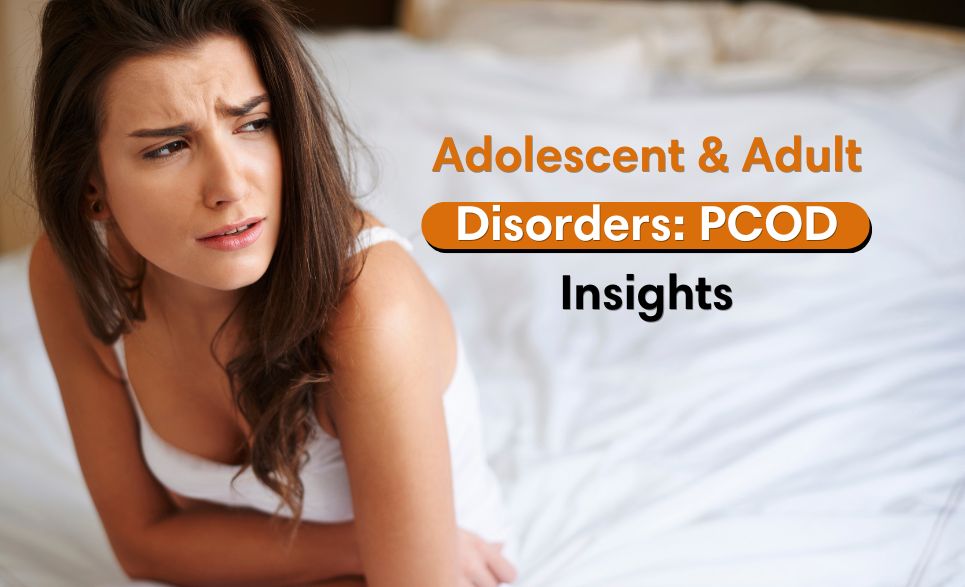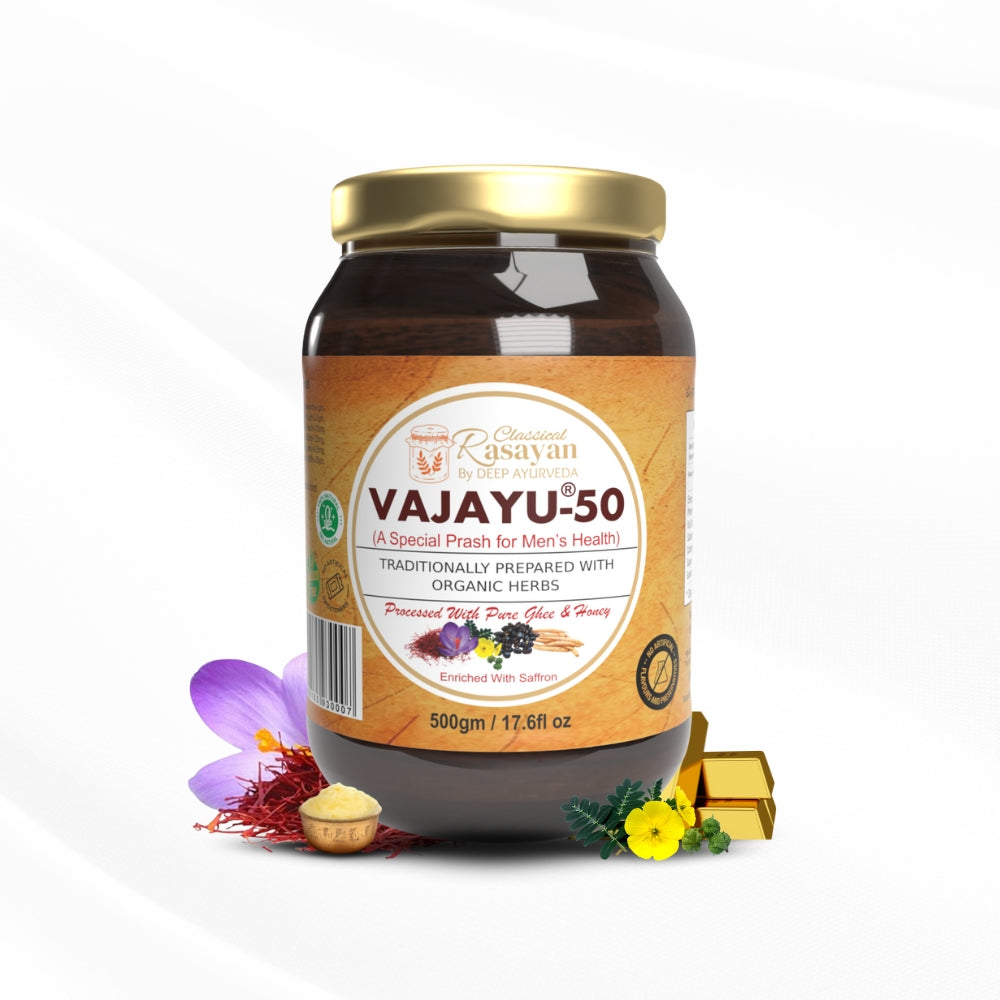The journey of a woman through adolescence and adulthood marks a transformative phase involving physical, emotional, hormonal, and psychological changes. These life stages are critical from a health perspective as they lay the foundation for long-term well-being, fertility, and overall quality of life.This phase is a transformation from starting of Menarche,to marriage, to becoming a mother and the starting of menopause.
Here is a list of common disorders in females during the adolescent to adulthood stage (approximately ages 13to 50).
Polycystic Ovarian Disease (PCOD/PCOS)
Anemia (Iron-deficiency Anemia)
Thyroid Disorders (Hypothyroidism common)
Infertility
Urinary Tract Infections (UTIs)
Endometriosis
Adenomyosis
Obesity and Lifestyle Disorders
Breast Disorders (e.g., Fibrocystic Breast, Mastitis)
PCOD(Poly Cystic Ovarian Disease)-Modern and Ayurvedic Perspective

1)Modern Perspective
PCOD(Poly Cystic Ovarian Disease) is a common hormonal disorder, characterized by irregular ovulation, multiple small cysts in the ovaries.
Causes
Hormonal Imbalance (especially high LH and androgens)
Genetic predisposition – Often runs in families
Lifestyle factors – Poor diet, lack of exercise, stress, obesity
Symptoms:
Irregular or absent periods
Excess facial or body hair (hirsutism)
Acne and oily skin
Weight gain
Infertility
Hairfall
Dark skin patches (acanthosis nigricans – insulin resistance indicator)
Pathophysiology (What happens in the body):
Hypothalamic-Pituitary-Ovarian (HPO) Axis Dysfunction-
The hypothalamus secretes GnRH (Gonadotropin-Releasing Hormone) in an abnormal pulsatile pattern.This leads to increased LH (Luteinizing Hormone) and normal or low FSH (Follicle-Stimulating Hormone).Excess LH stimulates theca cells in the ovaries to produce androgens (male hormones) like testosterone.
Increased ovarian androgen production causes:
Hirsutism (excess facial/body hair),Acne,Anovulation (lack of ovulation)
Androgens interfere with follicular development causes follicles to stop growing as a result multiple immature cysts form in ovaries.
Diagnosis
Ultrasound
Hormonal tests
Treatment Approach (Modern Medicine):
Oral contraceptive pills (OCPs) – to regulate periods and reduce androgens
Metformin – to improve insulin sensitivity
Clomiphene citrate or Letrozole – for ovulation induction in infertility
Anti-androgens (e.g., Spironolactone) – for hirsutism and acne
Ayurvedic Perspective

PCOD and Rasa Dhatu Dushti
Rasa Dhatu is the first and foundational dhatu formed after digestion of food (Aahara Rasa). It governs, menstrual fluid (Artava), and stanya(milk) .They both are called as updhatu of ras dhatu. So if their is dushti in ras dhatu formation it will automatically affect artav formation.Improper artav formation due to ras dushti leads to irregular or absent menses.
When Rasa Dhatu becomes vitiated due to Agnimandya (low digestive fire), incompatible diet, stress, or sedentary lifestyle, it leads to:
Improper formation of subsequent dhatus.
Accumulation of Aama (toxins).
Stasis or abnormal flow of Artava (menstrual fluid).
Hormonal imbalances in modern terms.
PCOD and Relation of dosha
PCOD is a result of Kapha-Pitta vitiation leading to:
Granthi (cyst) formation in ovaries.
Artava Dushti (menstrual irregularities).
Agnimandya and Aama accumulation.
It is often correlated with conditions like Aartavakshaya, Pushpaghni Jatharini, or Srotorodha (blockage in channels).
PCOD and apan vayu dushti
Apana Vayu, a subtype of Vata Dosha, governs the reproductive system, menstrual flow, ovulation, and elimination processes. Any imbalance or dushti (vitiation) in Apana Vayu directly affects the female reproductive health, including the pathology of PCOD.
Chikitsa (Treatment Principles):
1. Nidana Parivarjana – Elimination of causative factors
2. Agnideepana and Ama Pachana – Using Deepana (digestive stimulants) and Pachana (digestive herbs)
3. Shodhana (Panchakarma therapies) – To remove deep-seated doshas and toxins
Vamana – for Kapha dosha elimination
Virechana – to balance Pitta and hormones
Basti(matra basti of sahcharadi tail)-for apan vayu dushti
Nasya – for hormonal regulation via Shiro-abhyanga
Shamana Chikitsa (Oral Medications and Herbs):
Rajahpravartani vati
Lifestyle Changes for PCOD Management

Dietary Modifications (Aahara)
Avoid kaphvardak ahar like sweets,curd, maida, fried foods, processed snacks, dairy
Whole grains (millets), fresh vegetables, legumes, lean proteins, and healthy fats (ghee in moderation)
Warm water with Triphala churna at night
Triphala, flax seeds, turmeric, methi (fenugreek), jeera water
Herbal teas: Cinnamon, Tulsi, or Licorice tea
Vihara (Lifestyle):
Daily exercise (Yoga, walking)
Avoid day sleeping(divaswapna as it aggravates kaph)) and late nights(ratrijagran as it aggravates vaat)
Practice stress management (meditation, pranayama)
Maintain regular sleep-wake schedule
Exercise & Yoga
Brisk walking, swimming, yoga, dancing
Yoga asanas for PCOD:
Baddha Konasana (Butterfly Pose)
Malasana (Garland Pose)
Bhujangasana (Cobra Pose)
Setu Bandhasana (Bridge Pose)
Surya Namaskar (12 rounds daily)
CONCLUSION
Polycystic Ovarian Disease (PCOD) is not just a hormonal disorder—it is a reflection of deeper imbalances in the body, often rooted in improper diet, sedentary lifestyle, stress, and disrupted biological rhythms. While modern medicine focuses on symptom management, Ayurveda offers a holistic approach that addresses the root causes through dietary regulation, lifestyle changes, herbal support, and Panchakarma therapies.
By correcting Rasa Dhatu dushti, Apana Vayu imbalance, and removing Aama, Ayurveda aims to restore hormonal harmony and reproductive health naturally. With early intervention, personalized care, and a commitment to long-term wellness, PCOD can be effectively managed and even reversed—empowering women to reclaim their health and fertility.






